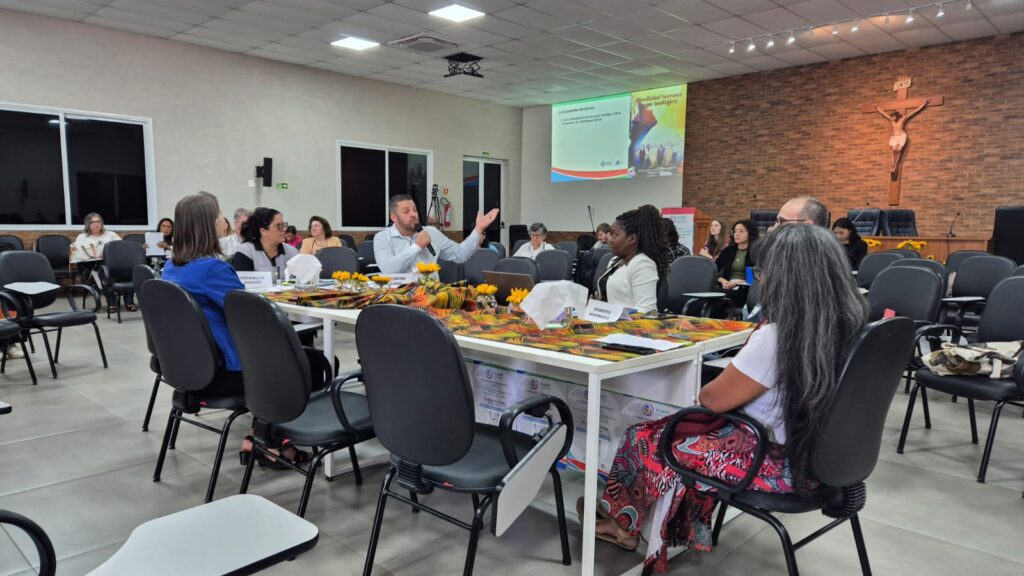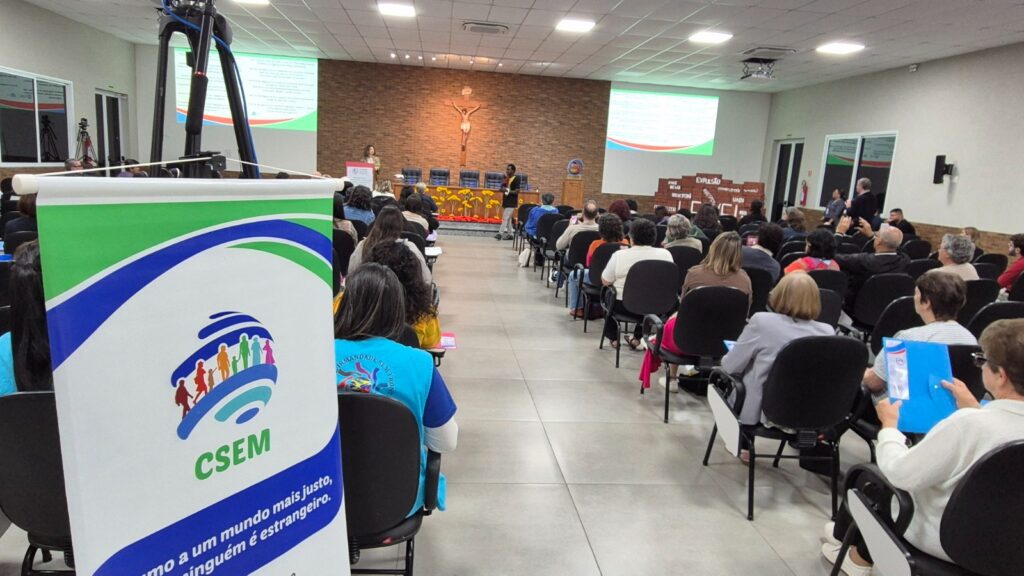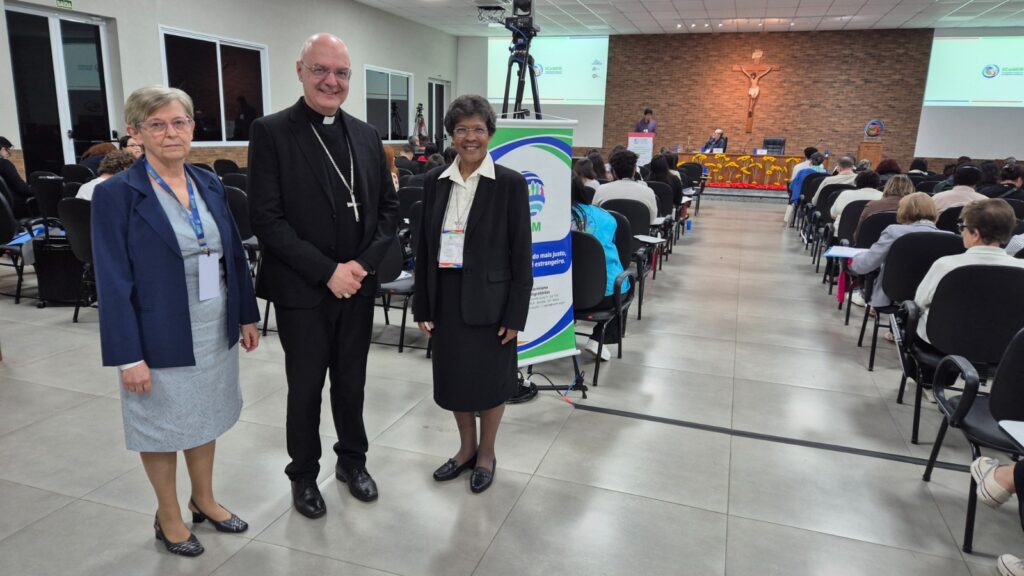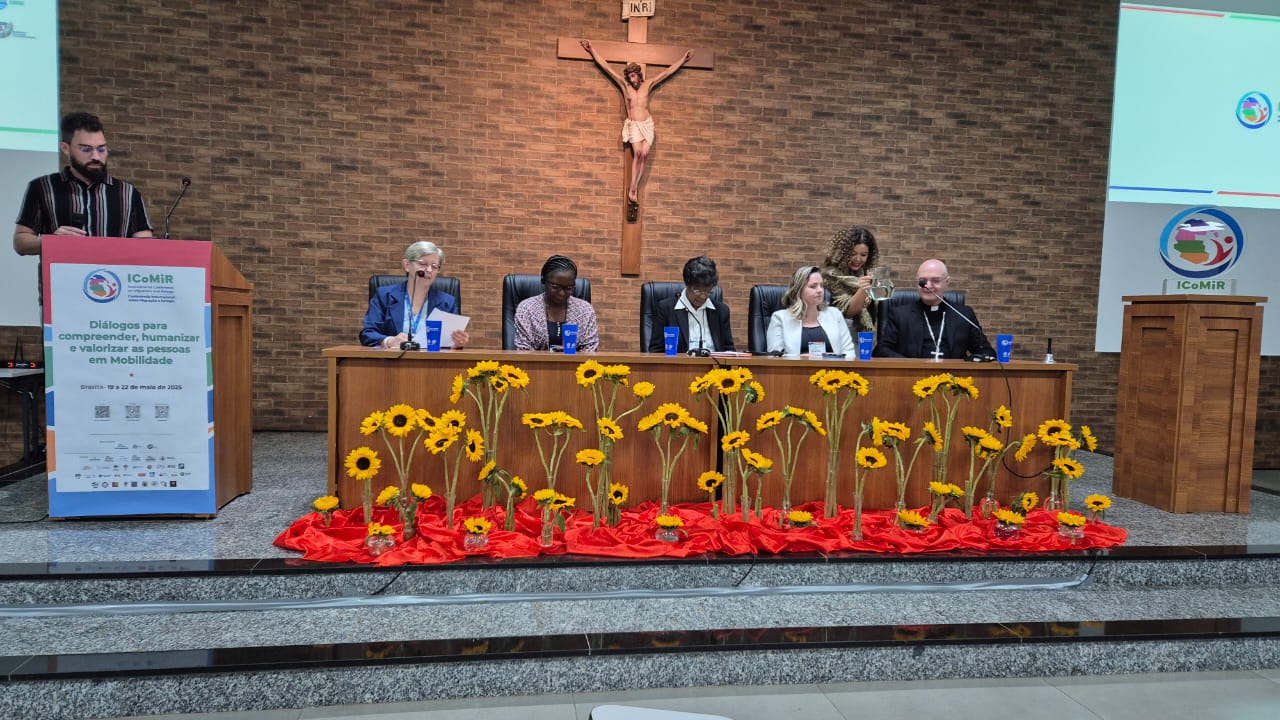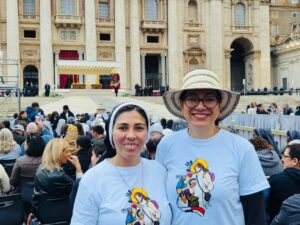The III International Conference on Migration and Refuge (ICoMiR) has begun. On its first day, the opening was marked by a beautiful symbolic moment with poetry and song, led by migrants involved in the Scalabrinian mission.
The opening session was followed by a panel composed of invited authorities who offered their opening remarks:
• Sister Marlene Wildner – Director of CSEM and host of the event
• Dr. Rose Jaji – Professor and researcher at the German Institute of Development and Sustainability
• Bishop Denilson Geraldo – Auxiliary Bishop of Brasília, representing Cardinal Paulo Cezar Costa, Archbishop of Brasília
• Dr. Flavia de Moura, UN Women Representative
• Sister Neusa de Fátima Mariano – Superior General of the Congregation of the Missionary Sisters of St. Charles Borromeo (Scalabrinians)
In her welcoming speech, Sister Marlene greeted the audience and highlighted the participation of Scalabrinian Sisters and collaborators from the Congregation’s missions around the world, all committed to the defense and promotion of the rights of migrants and refugees. Speaking about the Center for Migration Studies (CSEM), she stated:
“We work on the counter-narrative to the hegemonic view of contemporary migration and refuge. We aim to build a permanent and global platform for dialogue among academia, civil society, public institutions, and migrants and refugees themselves.”
The UN Women representative stressed that the conference is a crucial space for dialogue on human mobility, justice, and dignity. She dedicated her speech especially to: “women in situations of migration and refuge, whose stories are often invisible, yet reveal the many layers of inequality still shaping our territories and policies.”
She pointed out a significant change in Brazil’s migrant profile: in 2023, women accounted for 41.5% of asylum requests, a remarkable increase compared to just 10% a decade ago. This feminization of migration has profound implications for public policy and systems of reception and integration.
She explained that women on the move face double vulnerability: as migrants and as women. They are more exposed to gender-based violence, harassment, sexual exploitation, human trafficking, and precarious work conditions—especially in domestic and care sectors. In Brazil, more than half of domestic workers are Black women, and among migrant women, many work informally, without rights, fair wages, or protection.
Many of these women are also sole heads of households, taking on care responsibilities without institutional support. They often lack access to childcare, sexual and reproductive health services, or legal documentation. These factors directly affect their economic autonomy, well-being, and dignity.
She concluded by saying that this scenario calls for a “collective commitment to recognize and tackle these structural inequalities through intersectional public policies that consider gender, race, class, and territory. Migration justice will only be possible if it is also gender justice. We must leave no one behind.”
In her speech, Sister Neusa de Fátima Mariano, Superior General of the Missionary Sisters of St. Charles Borromeo, emphasized that the III ICoMiR reflects the dynamics, richness, and challenges of working with migrants and refugees. She stressed:
“Understanding the causes and consequences of migration, humanizing the process, and promoting the human rights of all involved are core elements of our Congregation’s charism. We also value the potential that human mobility brings to both migrants and the societies of origin, transit, and destination.”
She reaffirmed that, in today’s context, this mission is becoming increasingly challenging, requiring the Congregation to take ever more courageous and bold stances in defense of human dignity. The goal is to enhance the effectiveness and impact of Scalabrinian initiatives.
The main conference of the day addressed the theme: “Human Mobility: Itineraries for a Humanizing Coexistence”, with Jorge Castillo Guerra and moderated by Roberto Marinucci.
By Sr. Luciana Pitol, Communications Service
